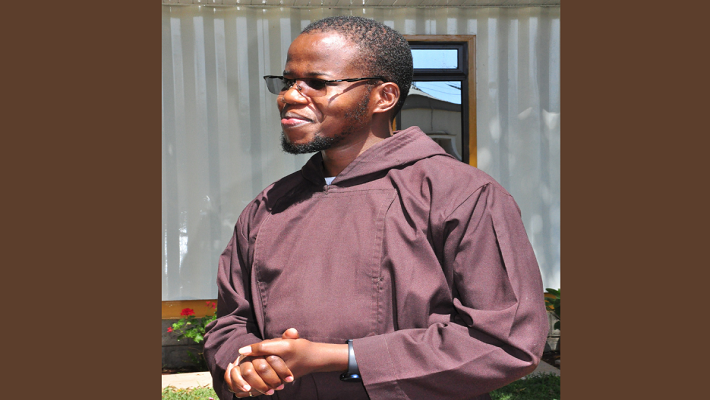By Paschal Norbert
NAIROBI, NOVEMBER 4, 2022 (CISA)- “There are various topics that are going to be discussed at COP27 but in all these, the Holy See would want to take its ideas, especially on education and youth because as the Holy See, we see that the youth are the part of the people who will implement these policies we are going to discuss,” said Fr Stephen Makagutu OFMCap, assistant to the Permanent Observer Mission of the Holy See to the United Nations Office at Nairobi (UNON) in an interview with CISA on November 3.
“We are calling to the nations of the world to give the youth an opportunity because they have enough time, enough energy to be able to bring into fruition the policies that we are drafting and their implementation. And therefore, for the youths to be able to do this, they also need education. So, we give the youth an opportunity to be able to get the education required and also give them an opportunity to serve,” rallied Fr Makagutu.
The member of the Order of Friars Minor Capuchin, and also a member of the Vatican’s delegation at the 27th session of the Conference of the Parties to the UNFCCC (COP27) in Sharm El-Sheikh, Egypt, says that they are putting their weight on education and youth, mitigation and adaptation, and on loss and damages to effectively tackle the global challenge of climate change.
“When we talk about loss and damage, it obviously leads us to climate justice and climate finance, that the people affected by the climate change and sometimes are not in a position to mitigate and adapt to it because of lack of resources. We need to look at it holistically, socially and spiritually. We have the youth who are still energetic, who can be able to use their human resource not only the financial resource. We will need the financial resources, but the human resource that we can gain from the youth and also from the indigenous people who have ways that they have adopted to mitigate climate change is a great resource,” says Fr Makagutu.
Over the years, critics of the UN climate change conference have argued that the commitments made have been relatively vague and little is done to implement the treaties signed at COP26 in Glasgow, Scotland, in 2021. However, Fr Makagutu believes that this year, Vatican’s delegation has positioned itself rightfully to move the conversation from negotiations and planning to implementation.
“As we go to COP27, we are called to action-oriented courses. The main focus of the Holy See and most countries to COP 27, is to see how whatever we have on paper and the policies can now be adapted. So, we are going to lobby with the other countries to leave this COP with actions that are going to take place and not just to remain in words,” he assured.
The Capuchin friar also alluded that the discussion around the phasing out of fossil fuel and adaptation of renewable energy as an alternative could also form part of the larger discussion at COP27 alongside climate finance.
“The Holy See supports the innovation of renewable energy that is solar, electric cars, and the rest. And through the Dicastery of Integral Human Development, we have had campaigns to stop EACOP. And therefore, we can see the participation of the Holy See in issues with fossil fuels, and trying to call to the other nations and organizations that support fossil fuels to stop and embrace renewable energy,” says Fr Makagutu.
COP, the Conference of the Parties, is the United Nations conference on climate change. It takes place every year and will bring together around 200 countries to present their plans to reduce carbon emissions.
